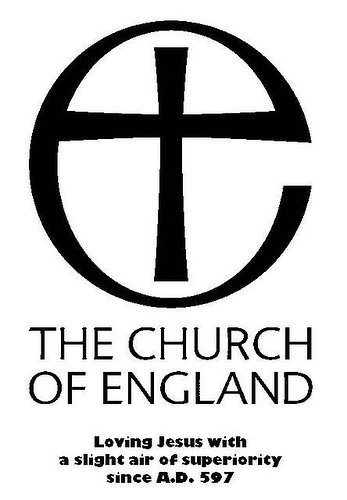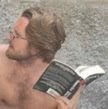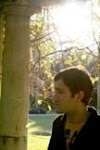
I'm struggling to remember what it was like to read and contemplate theory. A few years ago I was reading Judith Butler, the Gender Studies maven, as I recall, the conclusions and "unpacking" of gender roles she provided made complete sense in a roundabout way. Now I can't remember why exactly. These thoughts come to me as the General Convention of the Episcopal Church, my, for the time being, intellectual and spiritual preserve, has voted on the liberal side of the sexuality debate. This is partly because the traditionalist have already left the church and have no representation to offer. I guess, as I alluded to in a prior post I was hoping for an eternal stale-mate on this question. I can only assume that my prior life as a professional student would have openly welcomed this decision, but my place and activities have changed from the days of sitting around reading theory. While I don't think I'm necessarily any smarter than those days, I don't think I'm any dumber, or less contemplative about matters either. So the question becomes, how did such a change in thinking occur?
My best approximation: Place determines one's position
The academic environment informs opinion differently than the business world. I'm not thoroughly saturated in the business world, but I didn't want to use a phrase like "real world" as the alternative to the academic environment. I don't think that I have upgraded the milieu in which I live, but I do get different answers than before. So how do we reconcile the different places that we live in and the different prespectives that we garner from our respective places? Absent a universal or public good, how do our competing conceptions of good hold any preference outside of our place?
My father teaches math on the weekends to a group of students who aim to be the first college bound people in their families. He tries to prepare them for success in that environment. Every once in a while a truly talented kid will come through the program. Several years ago one such kid was mentored into applying to Princeton and subsequently received a full ride there. His parents, who did not exist within a framework where going to Princeton is a great achievement could not understand why their kid would need to go all the way to New Jersey, far away from his entire family to go to school when UT Permian Basin was in Odessa. The kid ended up going to UTPB. He could have chosen to go Princeton and followed the narrative of luminaries like Sonia Sotomayor, but he didn't. His place configured success differently than that.
And while we do have the law, which judges narratives as corrupt or not based upon legislation, a gang member might have a fully functioning rational narrative to take someone's life, but society has judged that as an unacceptable narrative, there seems to me few other frameworks with which to judge which narratives are successful and which ones are not.
So in the case of the Episcopalians, we have rival conceptions of Christ's church, informed by differing narratives in which majority rules. This makes me uneasy, I would prefer a framework of doctrine or creeds or authority, of course only when it complies with my perspective, to help adjudicate decisions like these. Even then, such tools are not stable.
It seems all I can do is make the narrative, or the opinions that my place has informed as attractive as possible and try to win as many as possible. A few weeks ago I was comforted by a passage in Thomas Merton's New Seeds of Contemplation in which he advocates a more other peoples conception of the good are none of your business attitude: "the humble man takes whatever there is in the world that helps him to find God and leaves the rest aside." This is all well and good, unless child molestation helps one to find God. It also does nothing to alleviate the anxiety I feel about my own positions. I would prefer to be "Right" within my own opinions, whatever that means, but subscribing to the idea that my opinions are the outcome of my place makes that hard to do.
I'll end with a witty quip by Terry Eagleton. Speaking on the adoption of Scientology and New Age Spirituality by celebrities he has this to say: "you wouldn't believe that if you only had $38.00 in the bank". I think that quote can apply to everything I wrote today.






1 comment:
I must admit that I was shocked how much this resonated with me given the title. I've been turning it over in my mind for a while now, and though I still feel I hold different opinions, I do share the general spirit of this post. Much of my liberal tendencies come less from the theology I read than from the science textbooks I'm engulfed by on any given day. Certainly the theologians I prefer cleared the brush for such opinions to build on, but nonetheless I feel lately I've been forming opinions that ultimately result from the challenges I face in studying science. Such is my place, and my position.
I often talk with friends about the immense sense of difficulty I find in trying to maintain a sense of continuity in my life. The variety of experiences I have had for the past 5=10 years seem so disparate. I began this decade fairly conservative, with a deep religious sentiment, and have ridden the pendulum to the opposite side. But, like you say here, I guess I can look at the whole narrative with a faint degree of wisdom knowing how all my varied opinions through the years have amounted to reflections of my context; and on my best days, my heart as well.
Though I haven't really grown any more conservative, I have grown skeptical of skepticism. For me too, this has left me increasingly disinterested with theory, except maybe that which directly informs my actions and lifestyle. I'm on the downhill slope to professional school, and hopefully that ever elusive "career". It scares me that this makes my opinions increasingly predictable. I only hope this momentum doesn't carry me into defense of our current health care system . . .
Post a Comment